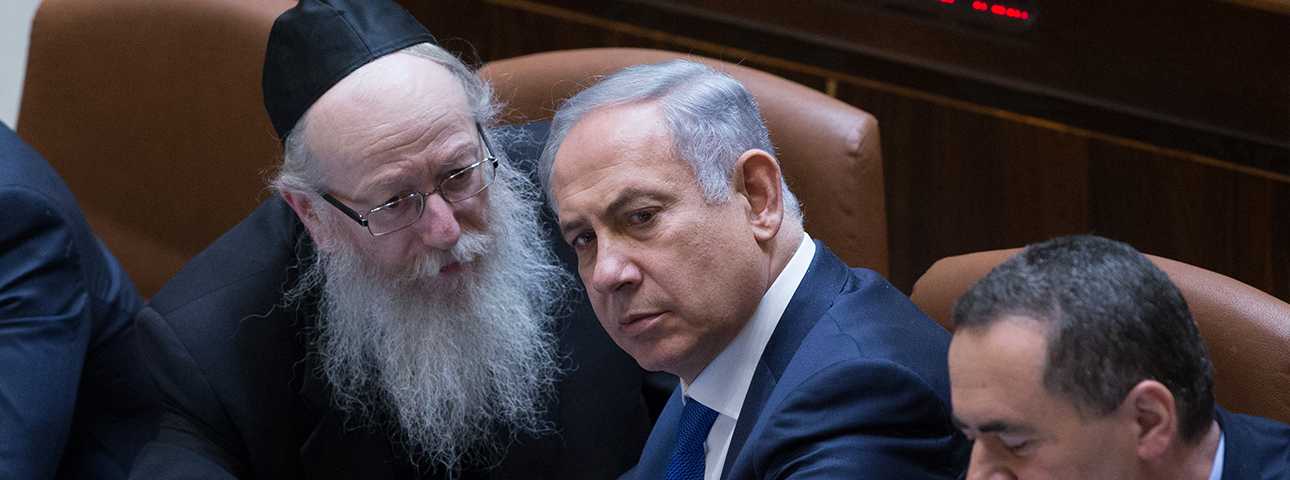Strengthening the 'Rule of Law' in Coalition Agreements
The Israel Democracy Institute calls on Parties to Demand Strengthening of 'Rule of Law' and 'Separation of Power's in Coalition Agreements.

Flash 90
The Israel Democracy Institute (IDI) called on all parties conducting the ongoing coalition negotiations to condition their participation in Israel's next government on a commitment by all partners to block initiatives that would weaken the rule of law or seek to fundamentally alter the existing balance of power between the three independent branches of government.
IDI presented the parties' leadership with an official opinion paper outlining three main recommendations:
1. A commitment to the balance between the branches of government – IDI calls to maintain the mechanism of judicial review and reject the inclusion of an override clause that would grant elected officials unlimited power. The Institute also calls on parties to reject demands for politicization of the process of appointing Supreme Court justices, and calls on party leaders to maintain the legal system’s integrity as a professional and independent body.
2. Strengthening the rule of law and rejecting private legislation which would prevent the prosecution of senior officials – This includes opposing legislative initiative, or attempts to amend laws to apply retroactively, aimed at shielding a prime minister or any other senior figure from criminal prosecution. Any such change would constitute the acceptance of inappropriate conduct on the part of public officials and would turn a blind eye to the existence of corruption in public service.
3. Rejecting 'blank check' agreements on government policy – Such agreement preclude any possibility of dialogue or debate, and limit the possibility of enacting sustentative policy initiatives during a government's term. The implications of such an agreement were on display in the outgoing government, when all coalition partners agreed to blindly support any initiative promoted by the Prime Minister regarding media regulation. Such agreements defy the accepted 'rules of the political game' and consolidate an unhealthy concentration of power in the hands of limited officials.
Yohanan Plesner, President of the Israel Democracy Institute: "The clauses that will be included in the coalition agreements – and no less importantly, those that will be omitted – will determine the character of Israel's next government. Now is a unique opportunity for party leaders to present the Prime Minister with a firm commitment not to lend a hand to legislation designed to undermine the rule of law and upset the delicate balance of power between the three branches of government. Any attempt to change the rules of the democratic game for political purposes is unacceptable, and every effort must be made to prevent such negative initiatives."
